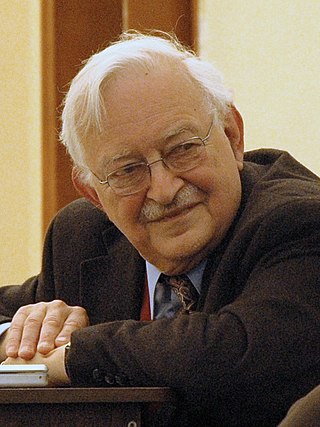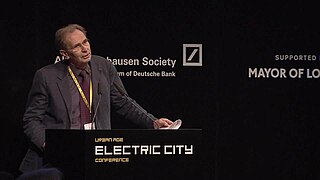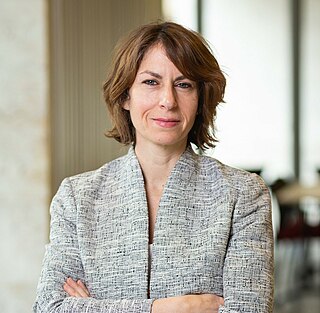Related Research Articles

Sociology of religion is the study of the beliefs, practices and organizational forms of religion using the tools and methods of the discipline of sociology. This objective investigation may include the use both of quantitative methods and of qualitative approaches.

Ulrich Beck was a German sociologist, and one of the most cited social scientists in the world during his lifetime. His work focused on questions of uncontrollability, ignorance and uncertainty in the modern age, and he coined the terms "risk society" and "second modernity" or "reflexive modernization". He also tried to overturn national perspectives that predominated in sociological investigations with a cosmopolitanism that acknowledges the interconnectedness of the modern world. He was a professor at the University of Munich and also held appointments at the Fondation Maison des Sciences de l’Homme (FMSH) in Paris, and at the London School of Economics.

Urban sociology is the sociological study of cities and urban life. One of the field’s oldest sub-disciplines, urban sociology studies and examines the social, historical, political, cultural, economic, and environmental forces that have shaped urban environments. Like most areas of sociology, urban sociologists use statistical analysis, observation, archival research, census data, social theory, interviews, and other methods to study a range of topics, including poverty, racial residential segregation, economic development, migration and demographic trends, gentrification, homelessness, blight and crime, urban decline, and neighborhood changes and revitalization. Urban sociological analysis provides critical insights that shape and guide urban planning and policy-making.

Political sociology is an interdisciplinary field of study concerned with exploring how governance and society interact and influence one another at the micro to macro levels of analysis. Interested in the social causes and consequences of how power is distributed and changes throughout and amongst societies, political sociology's focus ranges across individual families to the state as sites of social and political conflict and power contestation.
Social theories are analytical frameworks, or paradigms, that are used to study and interpret social phenomena. A tool used by social scientists, social theories relate to historical debates over the validity and reliability of different methodologies, the primacy of either structure or agency, as well as the relationship between contingency and necessity. Social theory in an informal nature, or authorship based outside of academic social and political science, may be referred to as "social criticism" or "social commentary", or "cultural criticism" and may be associated both with formal cultural and literary scholarship, as well as other non-academic or journalistic forms of writing.

Immanuel Maurice Wallerstein was an American sociologist and economic historian. He is perhaps best known for his development in sociology of world-systems approach. He was a Senior Research Scholar at Yale University from 2000 until his death in 2019, and published bimonthly syndicated commentaries through Agence Global on world affairs from October 1998 to July 2019.

Economic sociology is the study of the social cause and effect of various economic phenomena. The field can be broadly divided into a classical period and a contemporary one, known as "new economic sociology".
Patrimonialism is a form of governance in which all power flows directly from the ruler. There is no distinction between the public and private domains. These regimes are autocratic or oligarchic and exclude the lower, middle and upper classes from power. The leaders of these countries typically enjoy absolute personal power. Usually, the armies of these countries are loyal to the leader, not the nation.

Sociology as a scholarly discipline emerged, primarily out of Enlightenment thought, as a positivist science of society shortly after the French Revolution. Its genesis owed to various key movements in the philosophy of science and the philosophy of knowledge, arising in reaction to such issues as modernity, capitalism, urbanization, rationalization, secularization, colonization and imperialism.

Gøsta Esping-Andersen is a Danish sociologist whose primary focus has been on the welfare state and its place in capitalist economies. Jacob Hacker describes him as the "dean of welfare state scholars." Over the past decade his research has moved towards family demographic issues. A synthesis of his work was published as Families in the 21st Century.

John Richard Urry was a British sociologist who served as a professor at Lancaster University. He is noted for work in the fields of the sociology of tourism and mobility.

Comparative historical research is a method of social science that examines historical events in order to create explanations that are valid beyond a particular time and place, either by direct comparison to other historical events, theory building, or reference to the present day. Generally, it involves comparisons of social processes across times and places. It overlaps with historical sociology. While the disciplines of history and sociology have always been connected, they have connected in different ways at different times. This form of research may use any of several theoretical orientations. It is distinguished by the types of questions it asks, not the theoretical framework it employs.
The following events related to sociology occurred in the 1990s.

Sociology is the scientific and systematic study of human society that focuses on society, human social behavior, patterns of social relationships, social interaction, and aspects of culture associated with everyday life. Regarded as a part of both the social sciences and humanities, sociology uses various methods of empirical investigation and critical analysis to develop a body of knowledge about social order and social change. Sociological subject matter ranges from micro-level analyses of individual interaction and agency to macro-level analyses of social systems and social structure. Applied sociological research may be applied directly to social policy and welfare, whereas theoretical approaches may focus on the understanding of social processes and phenomenological method.
Mounira Maya Charrad is a Franco-Tunisian sociologist who serves as associate professor of sociology at the University of Texas at Austin.
Ann Shola Orloff is an American sociologist, specializing in Comparative-Historical Sociology, Gender and Social Inequalities, Sociological Theory and Political Sociology. She is a Professor of Sociology and Political Science and Board of Lady Managers of the Columbian Exposition Chair at Northwestern University. She is also editor of Social Politics, published by Oxford University Press, which she co-founded with Barbara Hobson in 1994.
Philip Stephen Gorski is an American sociologist, interested in both the sociology of religion and historical sociology.

A critical theory is any approach to humanities and social philosophy that focuses on society and culture to attempt to reveal, critique, and challenge power structures. With roots in sociology and literary criticism, it argues that social problems stem more from social structures and cultural assumptions rather than from individuals. Some hold it to be an ideology, others argue that ideology is the principal obstacle to human liberation. Critical theory finds applications in various fields of study, including psychoanalysis, film theory, literary theory, cultural studies, history, communication theory, philosophy, and feminist theory.

Dorit Geva is an American political sociologist who specialises in political sociology, social and political theory, politics of gender and sexuality, and comparative and historical sociology. She is Professor of Politics and Gender at the Institute for Political Science, University of Vienna. Formerly, she was Professor of Sociology and Social Anthropology and was Founding Dean of Undergraduate Studies at Central European University. While at CEU, she was part of a team that created the BA in Culture, Politics and Society at CEU. She is known for her research on right-wing politics in Europe, and for her research on establishment of the US draft system and its history of racial and gender discrimination. Geva is Chair of Publications Committee of Social Science History Association (SSHA) from 2021.

Hannah Brückner is a sociologist known for her contributions to several interdisciplinary fields, including life course studies, adolescent health, inequality, health, gender, and sexuality. She is an emeritus professor of Social Research and Public Policy at NYU Abu Dhabi and has served as Associate Dean of Social Sciences, program head for Social Research and Public Policy, and as chair of the Institutional Review Board. In 2015, she was appointed as Vice Provost for Faculty Diversity. Prior to her tenure at NYU Abu Dhabi, Brückner was a professor of sociology at Yale University. During her time at Yale, she served on the steering committee of the Women Faculty Forum and co-director of the Center for Research on Inequalities and the Life Course contributing to the university's efforts to address social inequalities and promote interdisciplinary collaboration.
References
- ↑ "Adams, Julia, 1957-". id.loc.gov. Retrieved January 5, 2021.
- ↑ "Social closure in American elite higher education" Archived 2017-12-15 at the Wayback Machine . Boston University. DL Swartz - 2008.
- ↑ Adams, J., Brückner, H. and Naslund, C. (2019). Who Counts as a Notable Sociologist on Wikipedia? Gender, Race, and the “Professor Test”. Socius: Sociological Research for a Dynamic World, 5, p.237802311882394.
- 1 2 "Sociology: Julia Adams".
- ↑ University of Michigan. College of Literature, Science, and the Arts (1992). LSAmagazine. UM Libraries. pp. 125–. UOM:39015061598101.
{{cite book}}: CS1 maint: multiple names: authors list (link) - ↑ American Council of Learned Societies (1994). Report. p. 53.
- ↑ "More news of Yale people". Yale Alumni Magazine. Jul/Aug 2014
- ↑ "Wikipedia's Scarcity of Women 'Wikipedians' Gets a Closer Look". NBC News, Dec 3 2014.
- ↑ Paling, Emma, "How Wikipedia Is Hostile to Women", The Atlantic , 21 October 2015
- ↑ "Wikipedia: a bias against women?". The National UAE, Daniel Bardsley, April 12, 2014
- ↑ " Wikipedia's Gender Problem Gets a Closer Look". by Stephanie Pappas, Live Science December 03, 2014
- ↑ Adams, J.; Brückner, H. (2015). "Wikipedia, sociology, and the promise and pitfalls of Big Data". Big Data & Society. 2 (2): 205395171561433. doi: 10.1177/2053951715614332 . ISSN 2053-9517.
- ↑ Adams, J. (2016) Can crowdsourcing capture academic knowledge? The Wikipedia experiment Parameters: Knowledge under digital conditions, SSRC. Retrieved 25 November 2018.
- ↑ L., Wei; Adams, J.; Brueckner, H. (2018). "The Ladies Vanish?". Comparative Sociology. 17 (5): 519–556. doi: 10.1163/15691330-12341471 . ISSN 1569-1322.
- ↑ Adams, Julia; Brückner, Hannah; Naslund, Cambria (2019-01-01). "Who Counts as a Notable Sociologist on Wikipedia? Gender, Race, and the "Professor Test"". Socius. 5: 2378023118823946. doi: 10.1177/2378023118823946 . ISSN 2378-0231.
- ↑ Adams, J. (2005). The Familial State: Ruling Families and Merchant Capitalism in Early Modern Europe. Cornell University Press, Ithaca, MY. Retrieved 25 November 2018.
- ↑ Adams, J.; Clemens, E.S.; Orloff, S. (2005). Remaking Modernity: Politics, History, and Sociology. Duke University Press, Durham, NC. Retrieved 24 November 2018.
- 1 2 Wilkes, Marilyn (December 6, 2010). "Julia Adams: The Familial State and Contradictions of Agency". YouTube.
- ↑ Twenty-First Century Inequality & Capitalism: Piketty, Marx and Beyond. Lauren Langman and David A. Smith. 2018. p. 113. ISBN 978-90-04-35704-4.
- ↑ Adams, Julia (2005). The Familial State: Ruling Families and Merchant Capitalism in Early Modern Europe. Ithaca, NY: Cornell University Press.
- ↑ Dhabi, NYU Abu. "Hannah Brückner". New York University Abu Dhabi. Retrieved 2019-11-22.
- 1 2 "Statement on Adams/Brückner Wikipedia Research Project (November 2014) | Sociology". sociology.yale.edu. Retrieved 2019-11-22.